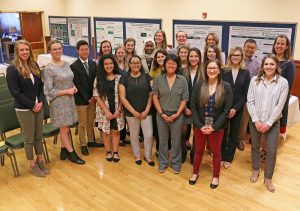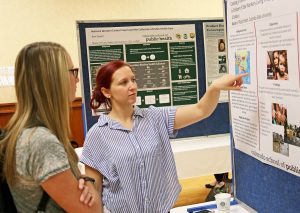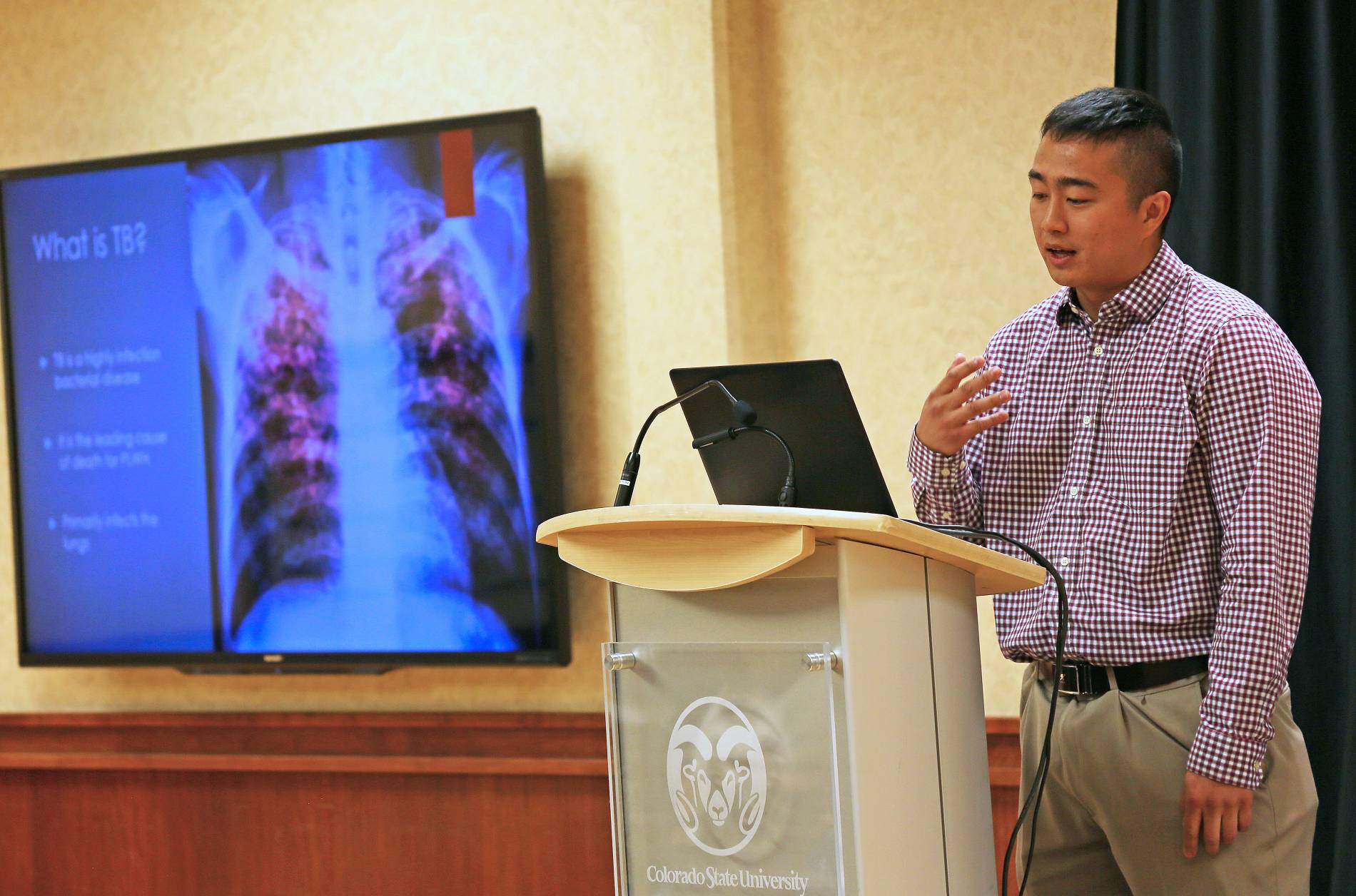It would be impossible to list everything students learn while completing their capstone projects, but here’s a start:
Anna Rodriguez learned that it would be wise to avoid co-housing bird species in barnyards to prevent or slow the spread of H7N9 influenza.
Kayla Hasstedt learned that parental involvement and really listening to students have the potential to increase educational outcomes in alternative schools.
Cameron Herritt learned that visualizing data can help enhance opportunities to improve student meal access to child nutrition programs.
The capstone project, which is the culminating experience of MPH studies at the Colorado School of Public Health at CSU, is all about learning. It gives students the opportunity to not only put into practice what they’ve studied in the classroom, but to work on a project with tangible public health impact and to learn – about the steps and processes involved in public health work, about the challenges and opportunities, about putting theory into practice  to effect positive change.
to effect positive change.
Students recently presented the results of their capstone projects at the ColoradoSPH at CSU Public Health Forum. Held at the end of each semester, the forum gives students the opportunity to present their work to an audience of faculty, students and guests in an oral presentation and poster session.
For Karl Weaver, who completed his project at Centennial High School in Poudre School District, the capstone allowed him to gather data over a nine-week period about the effectiveness of a mindfulness center for at-risk students called the Mindful Nest. When students were feeling distressed, they could go to the Mindful Nest for up to 10 minutes and participate in mindfulness – from coloring to music to sitting alone quietly – to help them achieve calm.
“It was really interesting because sometimes you could visibly see the students start to feel calm during the time they were in the Nest,” Karl said, adding that the mindfulness activities used in the Nest have the potential to help at-risk students better recognize when they’re feeling distressed.
 For JJ Salsbury, completing her capstone with the Denver-based Saving Moses meant learning about the cascading series of challenges that sex workers in Cambodia and Bangladesh face daily. Saving Moses helps address one of those challenges by providing night care for the young children of sex workers, also using the night care setting to teach caregivers and children about preventing the spread of communicable diseases.
For JJ Salsbury, completing her capstone with the Denver-based Saving Moses meant learning about the cascading series of challenges that sex workers in Cambodia and Bangladesh face daily. Saving Moses helps address one of those challenges by providing night care for the young children of sex workers, also using the night care setting to teach caregivers and children about preventing the spread of communicable diseases.
JJ worked on creating a toolkit to help night care workers, many of whom have limited literacy, recognize the signs and symptoms of diseases commonly spread during monsoon season and to understand treatment and prevention.
“The night care is a great start,” she explained. “It helps ensure the safety and well-being of these children while their mothers are working and how we have the chance to work toward preventing sickness.”
Students worked on projects spanning the breadth of public health practice, from mindfulness and risk-taking behavior in adolescents to an antimicrobial resistance surveillance system for Sudan and the effect of cathartic choreography in women’s prisons, learning about public health as they practiced it.

